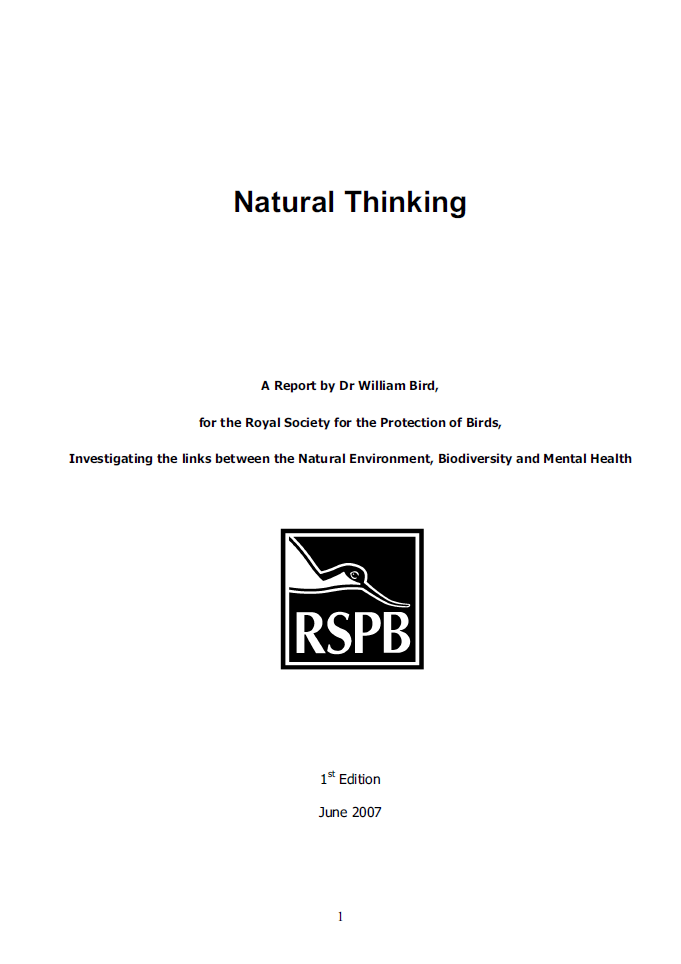Natural Thinking
Abstract
This report, commissioned by the RSPB, looks at the evidence linking wildlife-rich areas and green space with mental health. Past generations have intuitively understood this relationship, perhaps better than we do, yet the evidence needed to quantify the health value of the natural environment is still evolving. It is a paradox that as a society we find it unacceptable to take wild animals to be kept in captivity, yet older people in residential care homes can stay indoors for years with no access to the stimulation of the outside world. We spend millions to create ideal conditions for our garden plants balancing the right soil with the correct amount of shade and the right moisture, yet we allow our children to grow up in a hostile urban wilderness with concrete walkways, heavy traffic and no contact with nature. Logic would suggest that after 10,000 generations having to survive in a natural environment, human evolution would have programmed our genes to perform best in a favoured natural environment of water, shelter, food and safety. By the same logic, it would be surprising if the rapid disconnection of humans from nature in just a few generations did not cause some difficulty to adapt to this new environment. EO Wilson, who proposes the Biophilia hypothesis, says that ‘beauty is in the eye of the gene’; a deep genetic sequence may be hard to erase despite our efforts to be technically independent from nature and the natural environment. Humans are a species with as much need for the natural environment as any other. However, we are also a social species that thrives in towns and cities and has prospered with the use of technology. But neither technology nor cities can replace our need for the natural environment. We have to keep a balance. By disconnecting from our natural environment, we have become strangers to the natural world: our own world. This has challenged our sense of identity and in some more subtle ways has had a significant affect on our mental health.

